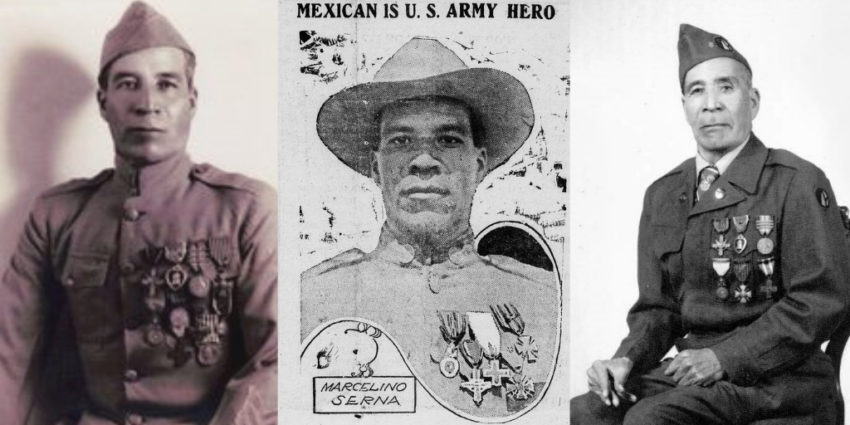
Share On Social!
Marcelino Serna is remembered as Texas’ most-decorated World War I veteran. Serna was the first Latino man to be awarded the Distinguished Service Cross and was awarded more than 10 other awards for his bravery and service in the Battles of St. Mihiel and Meuse-Argonne.
But he never received the most prestigious military award: The Medal of Honor.
Latino advocates are petitioning the U.S. Army and federal government to posthumously award Serna the Medal of Honor, arguing that he was denied the award because he was a Mexican immigrant.
“That Private Serna served during a time of extreme prejudice cannot and must not erase his acts of immense bravery and devotion to the United States,” wrote the Mexican American Legislative Caucus of Texas in a letter to the U.S. Army, according to Suzanne Gamboa of NBC Latino.
Update 5/28/21: A Texas legislative committee recently chose Serna “to be posthumously awarded the Texas Legislative Medal of Honor,” Gamboa reports.
Who is WWI Veteran Marcelino Serna?
Marcelino Serna was born in Chihuahua, Mexico in 1896. He immigrated to the United States in 1916 to look for work.
When World War I began, Serna was one of the first to volunteer for the army rather than wait for conscription. When the army realized he was a Mexican citizen and immigrant, they offered to discharge him. But Serna refused, choosing to stay and fight.
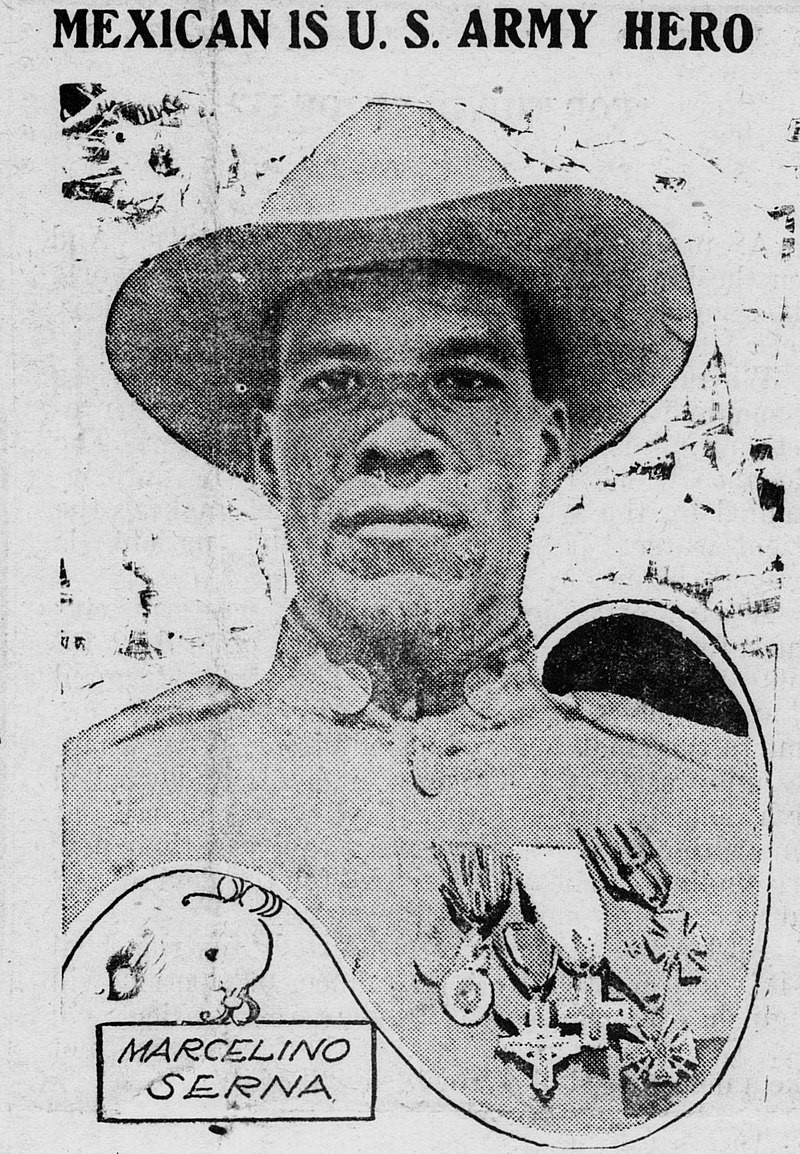
Serna stood out for his courage in the Battle of St. Mihiel and the Meuse-Argonne Offensive, which began on September 12th, 1918.
During these battles, Serna took on dozens of German soldiers alone by skillfully firing at them and creating the illusion that they were fighting a much larger force. The German soldiers surrendered and Serna took 24 of them prisoner, according to the Texas Handbook Online. As Serna sought to detain the 24 German soldiers, a fellow American soldier tried to kill them. Serna stopped him, saying it was against the rules of war.
For this, he was awarded the Distinguished Service Cross, according to a 1989 Department of Defense pamphlet, Hispanics in America’s Defense.
Why Didn’t Marcelino Serna Get the Medal of Honor?
Serna won many other military recognitions, but he did not receive the Medal of Honor, even as many of his white counterparts did for similar war achievements.
According to Hispanics in America’s Defense, Serna was told by an officer that to qualify for the award, one would have to be a higher rank than a “buck private.” But because Serna could not read or write English very well, he would not be able to be promoted.
Additionally, Latino advocates argue that many details about his achievements in the Battle of St. Mihiel were omitted from Serna’s Distinguished Service Cross record to make him appear less worthy of a Medal of Honor, according to an in-depth article about Serna by Gamboa of NBC Latino.
“It clearly appears Private Marcelino Serna did not receive the Medal of Honor due to him being a Mexican American and an immigrant,” Lawrence Romo of the American GI Forum, a civil rights groups, wrote to the Army, according to Gamboa’s article.
The Strong Record of Latinos in the Military
Historically, Latinos like Serna have played a large part in helping defend the United States.
Latinos have fought on both sides in the Mexican American War and Civil War and were a significant force for the Americans in both World Wars, according to Lorena Oropeza in her book Fighting on Two Fronts: Latinos in the Military.
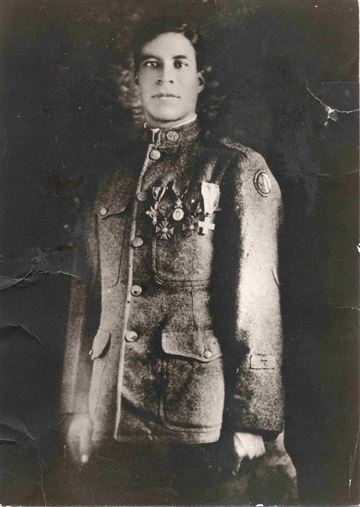
“Culturally, Latinos come from places that have long valued a tradition of military service,” Oropeza wrote.
As the Latino population of the U.S. has increased over the last few decades, so has the number of Latinos serving in the U.S. military.
The percentage of active duty military members who are Hispanic has tripled since the 1980s, according to Pew Research Center.
Now, about 16 percent of the U.S. military is made up of Latino service members, according to a report done by the Congressional Service Review in 2019.
However, this study also showed that leadership roles and promotions are not commonly held by Latinos, as they represent only 8 percent of the officer corps and 2 percent of general/flag officers.
“In the officer corps, and especially at the senior leadership level, racial and ethnic minorities are underrepresented relative to the enlisted corps and the U.S. population,” wrote Kristy N. Karmarck in the report for the Congressional Service Review.
Latinos Face Discrimination in the Military
Latinos account for a significant portion of the enlisted corps, but are not represented in the officer corps, as many barriers exist that prevent them from attaining promotion.
One of the barriers preventing Latinos from advancing to the officer corps, according to the Congressional Service Review, is the requirement of having a bachelor’s degree, as only 8 percent of adults with college degrees are Latino.
With so few Latinos being represented in the higher-ranking leadership positions, the lack of diversity can fuel a toxic and discriminatory culture.
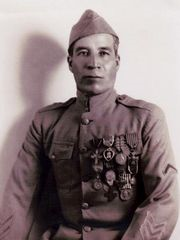
This was likely the case for Serna.
Nikki Wooten, an associate professor at the University of South Carolina College of Social Work and a Lieutenant Colonel in the U.S. Army Reserves, told USA Today about her research on diversity in the military, saying that racism negatively affects service members’ ability to be promoted as well as their mental health.
Wooten’s research showed that minority veterans who experienced discrimination in the military are more likely to experience mental health problems after being discharged.
“Having a diverse officer rank… you have a difference in perspectives in terms of military decision making… and about how it can negatively and positively affect the lower ranks, on troops, service members and their families,” Wooten said, according to USA Today.
While discrimination in the military continues to be a problem, military officials are hoping to change this.
Several high-ranking military officials have recently acknowledged the racism that affects soldiers from minority backgrounds and pledged to make better efforts to eradicate discrimination from the military.
“Racism and extremism — we just cannot have that in the United States Army,” said the Army Chief of Staff General James McConville in an online interview with Defense One. “There’s just no room for that. It breaks down cohesion in our Army. Any type of extremism, any type of racism, any type of people that aren’t willing to treat their fellow soldiers with dignity and respect and not willing to take care of each other cannot serve in our Army.”
The Fight for a Medal of Honor for Marcelino Serna
Marcelino Serna faced hardship and discrimination during his military service, but should still be remembered as one of the greatest Latino heroes of World War I.
Several campaigns have been launched over the last few decades to grant Serna the Medal of Honor posthumously.
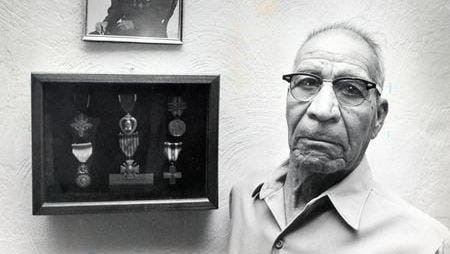
The American GI forum is leading the latest charge with a letter asking the U.S. Army for Serna’s Medal of Honor.
“There’s a lot of times in history when you can’t right a wrong, but this is an opportunity for us to right an obvious wrong,” Romo wrote, according to Gamboa’s article.
The Mexican American Legislative Caucus of the Texas House of Representatives also joined the effort with a letter to the U.S. Army.
Having Latino representation among high-ranking military officials and war veterans sets an important example for young Latino troops and gives them a voice.
“Throughout the history of our country, Latinos have made great sacrifices in many ways, but this one is a very unique way where Latinos such as Pvt. Marcelino Serna did so much for our country,” said Texas Representative Cesar Blanco, according to Gamboa’s article. “This demonstrates, especially now seeing race relations in such a volatile state, that correcting wrong injustices is important and this is a great effort to do that.”
What Can You Do to Fight Discrimination?
Racism, in the military and beyond, is a public health crisis.
Systemic racism and discrimination make it harder for Latinos and others of color to get healthcare, housing, transportation, education, employment, healthy food, safe treatment by police, all of which are exacerbated in the time of the coronavirus pandemic.
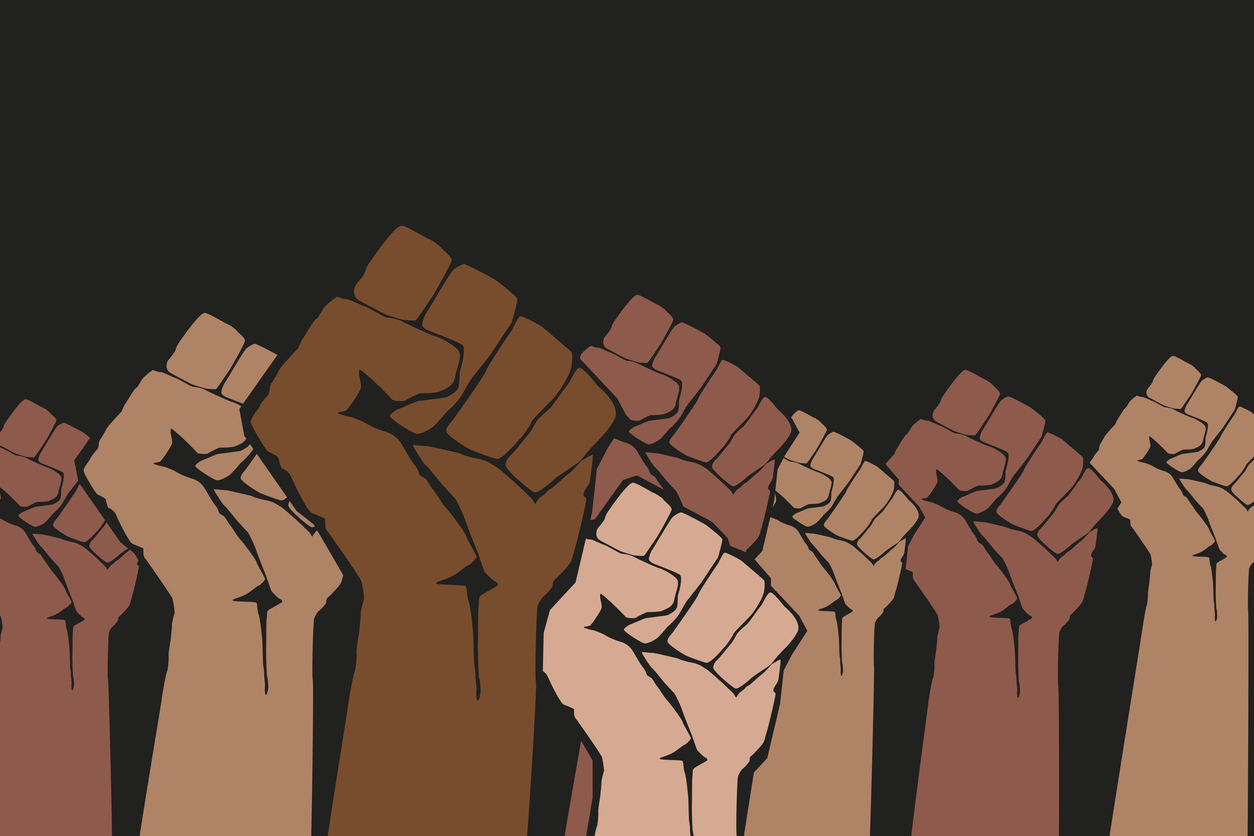 You can download and use the Salud America! “Get Your City to Declare Racism a Public Health Crisis Action Pack” to fight racism in your community.
You can download and use the Salud America! “Get Your City to Declare Racism a Public Health Crisis Action Pack” to fight racism in your community.
The Action Pack will help you gain feedback from local social justice groups and advocates of color. It will also help you start a conversation with city leaders for a resolution to declare racism a public health issue along with a commitment to take action to change policies and practices. It will also help build local support.
Dr. Amelie G. Ramirez, director of Salud America! at UT Health San Antonio, created this Action Pack with input from several San Antonio-area social justice advocates.
By The Numbers
44
million
immigrants live in the United States



